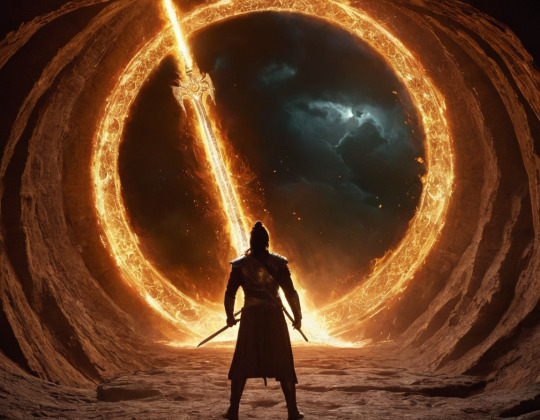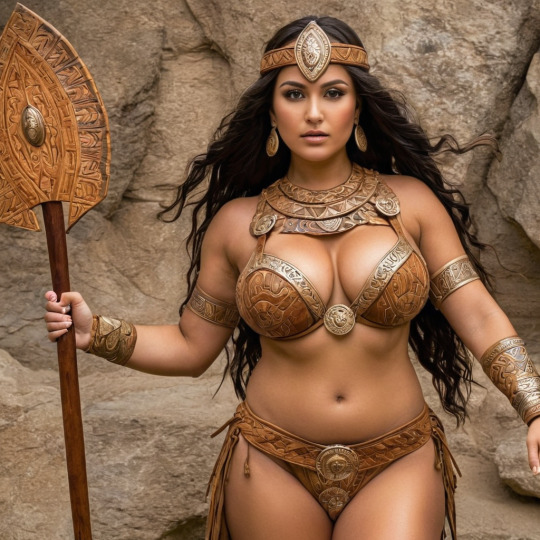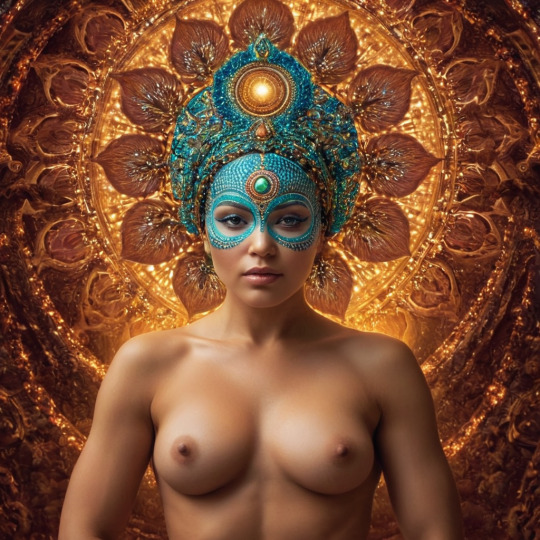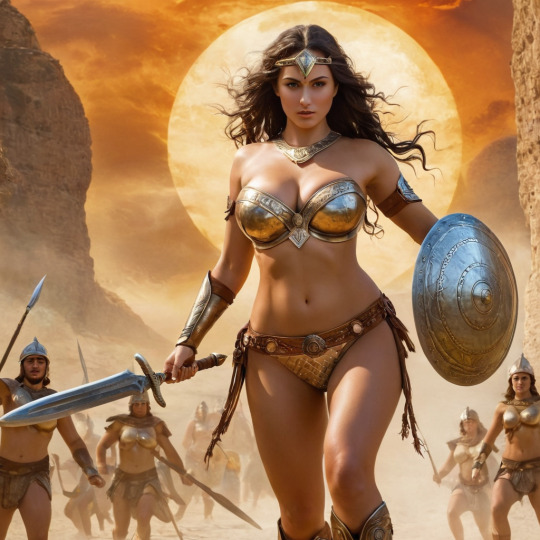Text

The Origins of the Pishdadian Dynasty: A Mythological Legacy
This legendary dynasty is deeply rooted in Persian culture and identity, and its myths have had a profound impact on the country's literature, art, and national pride.
The Early Years: Keyumars and the Dawn of Human Society
According to myth, the Pishdadian Dynasty was created by the god Ahura Mazda himself. The earliest known king of this dynasty was Keyumars (also known as Gayomard), who is said to be the first human being on earth. He brought order to a chaotic world and established the earliest forms of human society.
The Innovations of Hushang: Fire and Governance
The next notable king in this dynasty was Hushang, who is credited with discovering and harnessing fire – a revolutionary step in human development that allowed humans to cook their food, warm themselves, and light up the darkness. This innovation not only improved daily life but also marked the beginning of governance according to law and agriculture.
Tahmuras and the Golden Age of Human Civilization
Tahmuras, another important figure in this dynasty, subdued evil spirits and taught humanity writing and other arts. His reign was a golden age for human civilization, where people learned to make bricks, build houses, practice crafts and metallurgy, develop medicine and navigation, and celebrate the Persian New Year (Nowruz).
Jamshid's Legacy: A Golden Age of Peace and Prosperity
Jamshid is often considered the most famous king of this dynasty. He brought about a golden age of peace, prosperity, and cultural flourishing. During his reign, he introduced division into castes or professions – priests, warriors, farmers, artisans, and others – and established a just and fair system of governance.
One of Jamshid's most remarkable achievements was the construction of a "Vara" (enclosure) to protect humanity and animals from a devastating winter that threatened their very existence. This feat is reminiscent of Noah's Ark in biblical mythology or Manu's ark in Hindu mythology, demonstrating the importance of flood control and environmental stewardship.
The Pishdadian Dynasty is also significant for its establishment of just rule and kingship. These mythical rulers are seen as ideal examples of benevolent leaders who work tirelessly for the prosperity and well-being of their people. Their reigns set the standard for a golden age, which would be recalled in later historical Persian dynasties.
These myths have had a profound impact on Persian culture and identity. They provide a deep, ancient root for national pride and are often used to legitimize the rule of later historical dynasties. The stories also contain moral lessons, such as Jamshid's fall due to pride, serving as a cautionary tale about the misuse of power and the loss of divine favor.
Conclusion: The Enduring Impact of the Pishdadian Dynasty
In summary, while the Pishdadian Dynasty did not physically build cities or invent writing in the same way as documented Mesopotamian or Egyptian dynasties, they are foundational in the mythological and cultural sense for Iran. They represent the first steps of human progress and the establishment of an ideal social and moral order within the Persian worldview.
The Pishdadian Dynasty's legends have had a lasting impact on Persian culture, literature, and national identity, providing a powerful narrative for the origins of their civilization.
0 notes
Text

The tragic tale of Rostam and Sohrab
Oone of the most poignant and beloved episodes from the Shahnameh (Book of Kings), the national epic of Persia, written by the great poet Ferdowsi in the 10th century CE. It is a powerful story of fate, miscommunication, and the devastating consequences of war, particularly on familial bonds.
The Meeting of Rostam and Tahmineh
Rostam, the greatest hero and champion of Iran, known for his immense strength, his legendary horse Rakhsh, and his unmatched valor, one day goes hunting near the borders of Turan (the land of Iran's enemies). After a successful hunt, he falls asleep, and his beloved horse, Rakhsh, wanders off.
Upon waking, Rostam is distraught and begins to search for Rakhsh. His search leads him into the kingdom of Samangan, a vassal state of Turan. The King of Samangan, recognizing the great hero, welcomes him warmly, promising to help him find his horse.
That night, as Rostam rests in the palace, Princess Tahmineh, the King's beautiful and wise daughter, secretly enters his chambers. She has heard of Rostam's legendary deeds and is deeply enamored with him. She boldly expresses her admiration and her desire to have a child by him, offering to help him find Rakhsh in return. Rostam, captivated by her beauty and spirit, agrees.
They spend the night together. Before Rostam leaves the next morning (Rakhsh having been found), he gives Tahmineh two tokens: an armband (or a jewel and a seal in some versions) and a special jewel. He instructs her that if she bears a daughter, she should plait the jewel into the girl's hair. If she bears a son, she should tie the armband onto his arm, as a symbol of his lineage and a connection to his absent father. Rostam then bids her a tearful farewell and returns to Iran.
The Birth and Upbringing of Sohrab
Nine months later, Tahmineh gives birth to a son, whom she names Sohrab. The boy grows with astonishing speed, inheriting his father's immense strength, stature, and martial prowess. By the age of ten, he is already a formidable warrior, capable of deeds far beyond his years.
Sohrab constantly questions his mother about his father's identity. Fearing that Rostam would take Sohrab away to serve in the Iranian army, and wanting to protect him, Tahmineh initially keeps the truth from him. However, when Sohrab is around twelve or fourteen and his inquiries become relentless, she finally reveals that his father is indeed the legendary Rostam, the champion of Iran. She shows him the armband and other tokens Rostam left behind as proof.
Sohrab is overjoyed and filled with immense pride. However, he is also ambitious. He dreams of uniting Iran and Turan, deposing the current King of Iran, Kay Kavus (whom he considers inept), and placing his father, Rostam, on the throne. To achieve this, he decides to lead a large Turanian army, aided by the treacherous King Afrasiyab of Turan (who secretly hopes the father and son will destroy each other).
The Fateful Encounter
Sohrab's army marches towards Iran, capturing several border fortresses. Word reaches King Kay Kavus, who is alarmed by the reports of a young, extraordinarily powerful warrior leading the Turanian forces – a warrior whose description strikingly resembles Rostam himself. Fearing Sohrab's might, Kay Kavus immediately summons Rostam to confront him, threatening him with dire consequences if he delays.
Rostam, though initially reluctant due to Kay Kavus's past perceived insults, eventually rides to the battlefield on Rakhsh. The two armies meet. Sohrab, desperate to find his father, scans the Iranian ranks. He asks several Iranian warriors to identify Rostam, but they, knowing King Kay Kavus's jealousy and fearing the consequences of revealing Rostam's identity (or simply being sworn to secrecy), deliberately mislead him or remain silent.
Eventually, Rostam and Sohrab confront each other in single combat, neither knowing the other's true identity. Sohrab senses a profound connection to the older warrior and repeatedly urges Rostam to reveal his name, hoping to confirm his suspicion that this mighty foe is his father. But Rostam, bound by the rules of chivalry and perhaps a sense of caution, refuses, stating that a warrior's name should be earned through battle, not simply given.
The Tragic Duel
Their first duel is fierce and prolonged. Sohrab, with his youthful vigor, manages to overpower Rostam and throws him to the ground. He is about to deliver the fatal blow when Rostam, using his cunning and experience, tricks him. He declares that it is the custom of Iranian heroes to defeat an opponent twice before delivering the final strike. Sohrab, innocent and chivalrous, believes him and lets him go.
The two warriors rest and prepare for a second, even more intense, combat. Rostam, humbled and infuriated by his near-defeat, prays for strength. The second duel is long and brutal. Finally, Rostam manages to gain the upper hand. He uses a wrestling move, throws Sohrab to the ground, and with his famous dagger, plunges it into Sohrab's side.
As Sohrab lies mortally wounded, he declares that his father, Rostam, the invincible champion, will surely avenge his death. He then reveals the armband that Rostam gave to Tahmineh, telling Rostam that his father will recognize this token.
The Revelation and Aftermath
Upon seeing the armband, a cold dread washes over Rostam. He immediately recognizes his own gift and collapses in anguish, realizing that he has just fatally wounded his own son. His cries of despair echo across the battlefield. He frantically sends for the legendary elixir, the "Panacea" (or a specific antidote from King Kay Kavus), which could save his son.
However, King Kay Kavus, filled with jealousy and fearing that a united Rostam and Sohrab would pose a threat to his throne, deliberately delays sending the antidote. It arrives too late. Sohrab, in his final moments, bravely tells his father not to mourn and expresses his last wish for Rostam to care for his mother, Tahmineh.
Sohrab dies in his father's arms. Rostam is utterly broken by grief. He dismantles his military camp, burns all his weapons and armor, and lives a life consumed by sorrow. Tahmineh, upon hearing of her son's death, burns Sohrab's house, gives away his possessions, and eventually dies of a broken heart, her spirit following her beloved son.
Themes of the Story:
Fate vs. Free Will: The story heavily emphasizes the role of a cruel and inescapable fate that orchestrates this tragic encounter.
Miscommunication and Mistaken Identity: A central theme is the failure of both father and son to recognize each other due to a series of unfortunate circumstances and deliberate concealments.
The Tragedies of War: It vividly portrays the devastating personal cost of war, showing how it can destroy even the most fundamental human relationships.
Familial Love and Loss: Despite the tragic outcome, the deep love between parent and child is a powerful underlying current.
Chivalry and Deception: Rostam's trickery in the first bout highlights the complex morality of heroism.
The Hero's Burden: Rostam, the greatest of heroes, is ultimately helpless against his own destiny and the tragic irony of his life.
The story of Rostam and Sohrab remains a timeless masterpiece, resonating with audiences across cultures due to its universal themes of love, loss, and the unyielding hand of destiny.
0 notes
Text

The story of Kaveh the Blacksmith from Ferdowsi's Shahnameh
A tale of tyranny, oppression, and the courage of an ordinary man who sparks a revolution, becoming a symbol of resistance and freedom for the Iranian people.
The Tyranny of Zahhak
The story of Kaveh is set during the horrific reign of Zahhak, a monstrous, tyrannical king whose rule cast a long, dark shadow over Iran. Zahhak was not originally evil; he was an Arabian prince named Azhi Dahaka. However, he was tricked by Iblis (the Devil), who first appeared as a benevolent advisor and then as a cook. Iblis kissed Zahhak's shoulders, and from the spots where his lips touched, two black serpents (or dragons) grew.
These serpents could not be removed, and they caused Zahhak immense pain. Iblis, disguised as a physician, then "advised" Zahhak that the only way to soothe the serpents' hunger and pain was to feed them the brains of young men, two every day.
Thus began Zahhak's brutal 1,000-year reign of terror. Every day, two innocent young men from Iran were sacrificed to feed the serpents. The land groaned under his oppression, joy vanished, and despair settled over the people. Zahhak himself was consumed by his monstrous affliction and his increasingly cruel nature.
Kaveh's Plight
Among the countless families suffering under Zahhak's tyranny was Kaveh the Blacksmith. Kaveh was a simple, honest man, dedicated to his craft and his family. But tragedy struck him repeatedly. One by one, Zahhak's agents took seventeen of his sons to be sacrificed to the serpents.
When Zahhak's men came for Kaveh's eighteenth and last son, Kaveh's grief and fury finally reached their breaking point. He stood before the royal court, a humble blacksmith, but now filled with a righteous indignation that transcended fear.
The Spark of Rebellion: Kaveh's Apron
Kaveh burst into Zahhak's palace, demanding justice. He confronted the tyrant directly, pointing out the gross injustice of taking his last son. Zahhak, surprised by the blacksmith's audacity, tried to appease him, even offering to return his son. Zahhak then produced a royal decree, a document that claimed to be a testament to his just rule, and demanded that Kaveh sign it as a witness.
Kaveh, seeing the falsehood and hypocrisy of the decree, refused. In a moment of sheer courage, he tore up the document, rejecting Zahhak's false authority and the very foundation of his unjust rule. He then let out a rallying cry, condemning Zahhak's tyranny and urging the people to rise up against the oppressor.
As he stormed out of the palace, Kaveh performed an act that would become iconic. He took his leather apron – the humble, soot-stained apron he wore in his forge – and hoisted it upon a pole as a banner. This simple, ordinary apron became the Derafsh-e Kaveh (The Flag of Kaveh), the first banner of resistance against Zahhak's tyranny.
The March to Fereydun
Kaveh, with his apron-banner, began to march through the streets, crying out for freedom and justice. His passion ignited the hearts of the oppressed. People, tired of Zahhak's cruelty, flocked to his side. His small band of followers quickly grew into a vast army.
Kaveh did not seek kingship for himself. He knew that the rightful king of Iran, Fereydun, a descendant of the Pishdadian kings Jamshid and Tahmuras, had been hidden away and raised in secret to protect him from Zahhak's reach. Kaveh led his newfound army to the hiding place of Fereydun.
Fereydun, a young man of noble spirit and courage, recognized the significance of Kaveh's rebellion. He embraced the Derafsh-e Kaveh, adorning it with precious jewels and rich silks, transforming the humble apron into the royal standard of Iran, a symbol of liberation and rightful rule that would be carried by future Persian kings for centuries.
The Overthrow of Zahhak
Under Fereydun's leadership and with the unwavering support of Kaveh and the liberated people, the army marched against Zahhak. After a decisive battle, Zahhak was defeated. Fereydun, guided by the angel Sorush, did not kill Zahhak, but imprisoned him in chains in a cave on Mount Damavand, where he remains to this day, suffering the pain of his own serpents, a symbol of eternal tyranny suppressed but not fully extinguished.
Kaveh, having played a pivotal role in overthrowing the tyrant, returned to his forge, content with his simple life, embodying the virtue of humility and the power of an ordinary man's courage. His apron-turned-flag became the enduring symbol of Iranian freedom and the will of the people to resist oppression.
The story of Kaveh the Blacksmith is a powerful testament to the idea that even the most humble individual can spark a revolution against tyranny. It celebrates courage, justice, and the deep-seated desire for freedom, making the Derafsh-e Kaveh one of the most significant symbols in Persian history and culture.
1 note
·
View note
Text
A sanctuary of AI-generated artistry, where the celestial meets the ancestral, weaving a luminous tapestry of women of mystique and untamed beauty. Each creation is a whispered echo.
Step into the expanse. Feel the pulse. Awaken. ✨🔥

1 note
·
View note










































